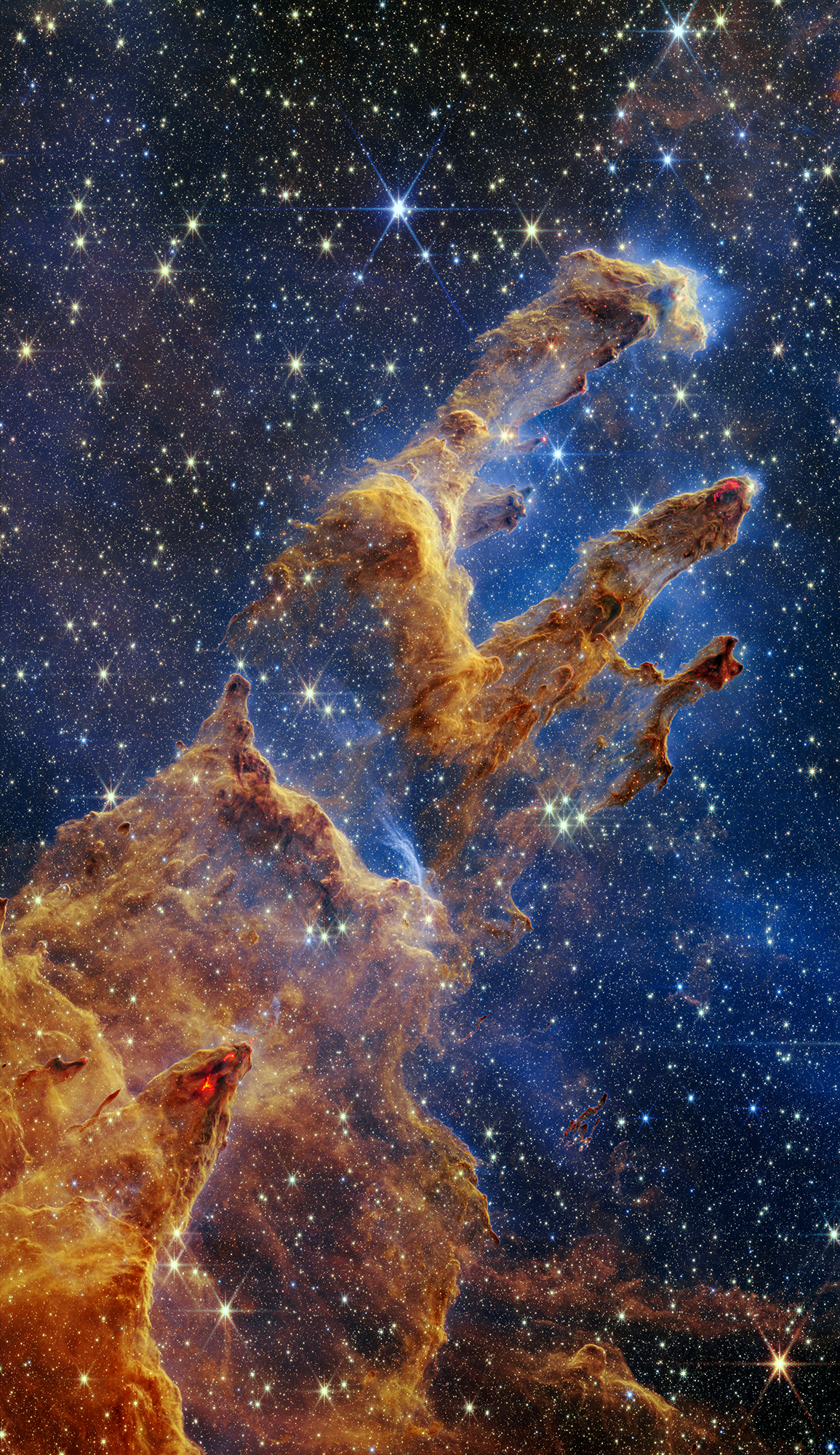
Pillars of Creation
NASA, 2022
My dear friends,
On this Trinity Sunday, we reflect upon the profound vision of the prophet Isaiah, a vision that reveals the necessity for purification before one can fully embrace their divine calling. Just as the prophet Isaiah encountered the holy presence of God, we too are called to a journey of transformation and purification.
I saw the LORD, high and exalted, seated on a throne;
and the train of his robe filled the temple.
Isaiah 6:1
Isaiah's vision begins with the grandeur and majesty of the Lord, exalted and seated on a throne. This powerful imagery sets the stage for an encounter that transcends the ordinary, inviting us to recognize the divine in its fullness. In the presence of such holiness, Isaiah becomes acutely aware of his own unworthiness, an awareness that is a crucial step in the journey of any prophet or Bodhisattva.
With two wings they covered their faces,
with two they covered their feet,
and with two they were flying.
And they were calling to one another:
“Holy, holy, holy is the LORD Almighty;
the whole earth is full of his glory.”
Isaiah 6:2-3
The seraphim, with their awe-inspiring presence, continually proclaim the holiness of the Lord. Their chant of "Holy, holy, holy" echoes the depth of divine purity and glory that fills all creation. This proclamation not only magnifies the divine but also highlights the contrast between divine purity and human imperfection. For us, it serves as a reminder of the sacredness of our spiritual journey and the reverence we must hold.
“Woe to me!” I cried. “I am ruined! For I am a man of unclean lips,
and I live among a people of unclean lips, and my eyes have seen the King, the LORD Almighty."
- Isaiah 6:4-5
Isaiah's reaction to the divine presence is one of utter humility and self-awareness. He recognizes his own flaws and the flaws of his people, understanding that in the light of divine holiness, all imperfections are laid bare. This moment of self-realization is pivotal, for it is only through acknowledging our impurities that we open ourselves to the transformative power of divine grace.
which he had taken with tongs from the altar.
With it he touched my mouth and said,
“See, this has touched your lips; your guilt is taken away and your sin atoned for.”
Isaiah 6:6-7
The seraphim's act of purifying Isaiah with a live coal symbolizes the burning away of impurities and the atonement of sin. This act of purification is essential for Isaiah to fulfill his prophetic mission. Similarly, in our spiritual journey, whether as prophets or Bodhisattvas, purification is necessary to align ourselves with our higher purpose. This process, though often painful, is vital for spiritual growth and readiness to serve.
And I said, “Here am I. Send me!”
Isaiah 6:8
Isaiah's response, "Here am I. Send me!" is a testament to his readiness and willingness to embrace his divine calling after undergoing purification. For us, this signifies that once we have been purified and our sins atoned for, we too can respond to our divine calling with courage and commitment. It is a call to action that echoes the Bodhisattva's vow to alleviate the suffering of all sentient beings.
As we celebrate Trinity Sunday, let us reflect on the importance of purification in our spiritual lives. Just as Isaiah was cleansed and prepared for his prophetic mission, we too must seek purification to fully realize our potential as bearers of divine wisdom and compassion. May we embrace this path with humility, courage, and a steadfast commitment to serve.